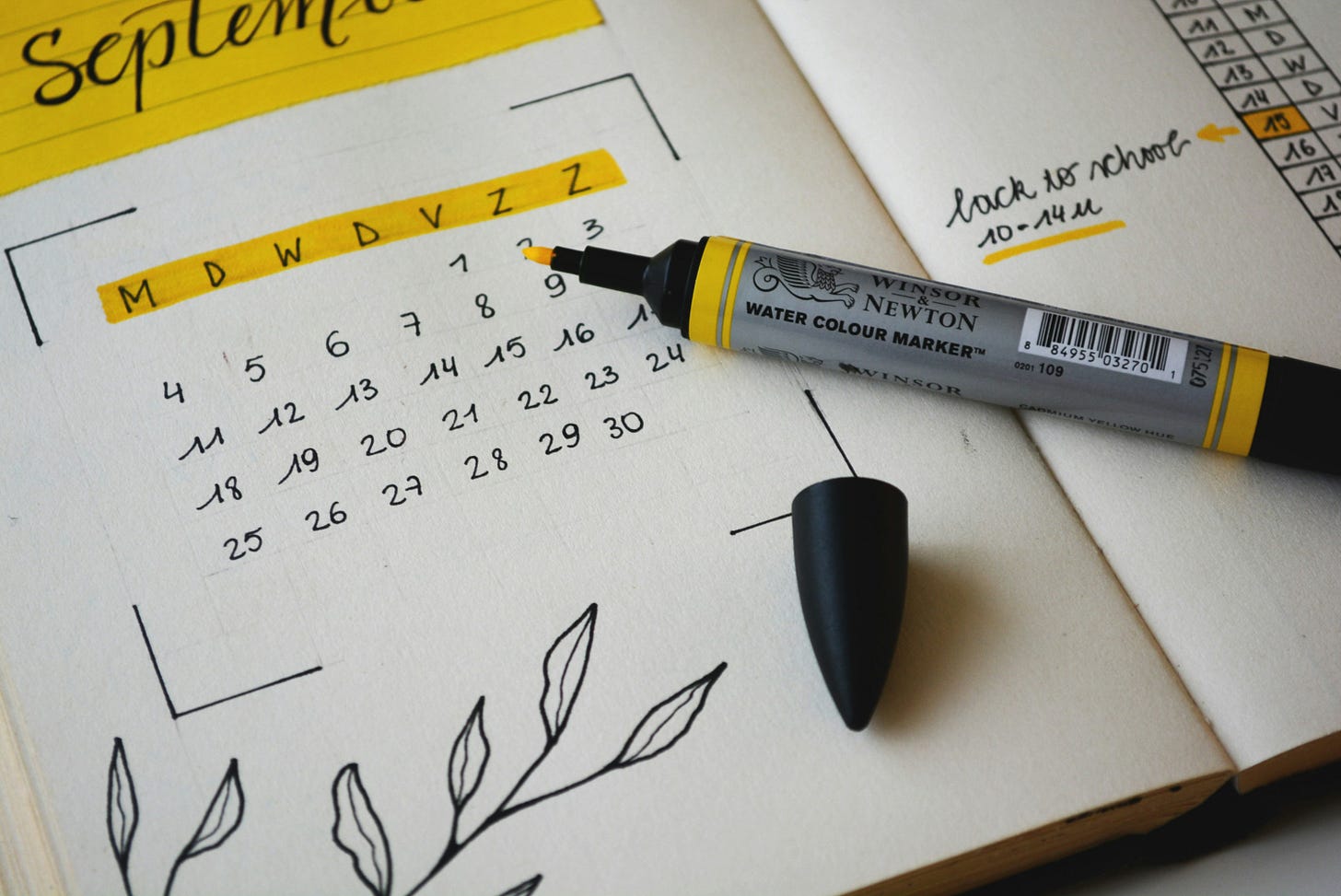How to change habits and stop procrastinating with the Seinfeld Method
Big changes start with small things
🏷️ Categories: Habits, Procrastination
Jerry Seinfeld is a comedian known for being one of the best comedians in history. Comedy Central ranks him as one of the 100 greatest comedians of all time. Seinfeld was the creator and writer of the series ‘Seinfeld’, a 1990s sitcom so successful that TV Guide named the episode ‘The Contest’ as the best TV series episode ever.
His achievements are not trivial, but there is something even more astonishing.
Its consistency.
Year after year, performance after performance, Jerry Seinfeld maintained a very high standard of quality while being the most prolific in his industry by far. For him, the dilemma of quantity or quality was meaningless, he did both at the same time. It is a consistency that we would all like to have in our daily lives.
If we stop to think about it, we are very clear about our goals, but when it comes down to it, we struggle to get started and end up procrastinating. It's frustrating because we know we are sabotaging our own goals, but it always happens.
What did Seinfeld do to have such admirable consistency day after day?
I don't know everything that went into his work, but I did recently discover a story in which Seinfeld revealed a technique he used every day that helped him a lot throughout his life.
Let’s see what Seinfeld did to be such a prolific person.
The Seinfeld Method
It's amazing how something so simple can be so effective.
The story goes that Brad Isaac, a young comedian, met Jerry Seinfeld during one of his performances. After the show, Brad went to talk to Jerry, eager to meet him in person and draw on all his experience to ask him a question. Brad asked him how he could be a better comedian (Trapani, 2023).
Seinfeld's answer shocked Brad.
To be a better comedian, he had to write a joke every day. To do this, he was to buy a large calendar that would show 365 days of the year and hang it in a place where people would frequently pass by. Now all he had to do was use a red felt-tip pen and mark each day he wrote a joke with a big ‘X’.
Eventually he would have a chain of ‘X's’ that would motivate him to continue the next day.
His only job was not to break the chain.
Why does the Seinfeld method work?
One very important thing, at no point did Seinfeld tell Brad anything about results, whether the joke was good or bad, and it didn't matter if Brad had the time or was motivated that day.
Only one thing mattered: not to break the chain.
No matter what area you look at, the ones that get the most results are usually the most consistent. Some struggle between motivation on a good day and procrastination the next day, others never fail despite having a bad day or a lousy performance the day before.
This works because it uses a psychological process that we should be aware of.
A habit is a behaviour that we do repeatedly until we do it without thinking, it becomes natural. To get to this point, William James, a pioneering psychologist, said that you had to repeat the habit for 21 days, although new research says it takes between 18 days and 3 months, depending on the habit you want to acquire (Lally et al., 2010; Wood and Runger, 2016).
If we use the technique we stop obsessing about the distant goal and start working on the present. We don't have to get overwhelmed if we had a bad day or were uninspired, we just have to work on not breaking the chain.
Now let's see how we can apply it in our daily lives.

How to apply the Seinfeld Method
Choose a goal: I recently talked about how having too many goals makes us not move towards any of them. You have to prune your branches and focus on a few so that they can bear good fruit.
Choose the necessary habits: Analyse your daily life, what habits are contributing to achieving your goals? Think about which habits you need to acquire and whether you need to eliminate old habits.
📌 Tip: Don't make my mistake. Imagine you want to write a book, then your habit can't be to write 20 pages a day. Start the habit small to make it sustainable and then build it up.
Use a calendar: Get a big calendar where you can see the whole year at a glance. If it is a physical calendar, the better, the more satisfaction it gives you to see it and cross out with an X each day. A calendar like this one can be useful: Calendar.
Don't break the chain: There will be days when it's easy to get into the habit, there will be days when it's a challenge. It doesn't matter if at the beginning you are not able to do it, don't get discouraged, that's how we all started, be constant and eventually the chain will start.
The power of habits
The method is simple, get into a habit and stick to it. As easy or as hard as it looks.
Never break the chain, especially at the beginning, which is when you are acquiring the habit and it is really difficult to maintain it. Eventually, if you fail one day nothing will happen either, but you can't fail several times, otherwise you will go back to your old habits.
I will tell you something that nobody knows.
When I started Mental Garden almost 6 months ago, I quickly realised that this decision would force me to change my lifestyle if I wanted to write often. I had to get into the habit of writing. For the last 3 months I have been getting up every day at 6:30 in the morning to write.
Yes, Saturdays and Sundays too.
In the beginning, I used to get up and hardly stand up, now I get up at 6:30 without an alarm clock. That's the difference between getting into the habit and having the habit.
When you acquire the habit the effort is great and the benefit is small.
When you have the habit the effort is small and the benefit is big.
No matter what your goal is, they are all based on building habits:
Don't break the chain of writing and you'll see the prolific pace you can keep.
Don't break the workout chain and you'll see how fast you progress.
Don't break the diet chain and you'll see the excellent health you'll enjoy.
Changing habits is changing your life.

✍️ It's your turn: What habits are you looking forward to acquire to achieve your goals?
💭 Quote of the day: ‘Step by step, day by day, your choices will shape your actions until they become habits where practice makes them permanent’. Darren Hardy in The Compound Effect.
Thanks for joining me for another day, see you soon! 😊
📌 P.S. Just 2 days ago I failed in my habit of getting up at 6:30. I got up at 7:45 because I went to bed very late. Nothing is going to happen because I'm aware of my habit and I'm going to keep repeating it so I don't give it up.
I tell you this so you can see that we all fail.
I am not perfect, neither are you.
Aim for excellence, perfection is unattainable.
References 📚
Comedy Central top 100 comedians of all time. IMDb. https://www.imdb.com/list/ls052672615/
Lally, P., Van Jaarsveld, C. H. M., Potts, H. W. W., & Wardle, J. (2009). How are habits formed: Modelling habit formation in the real world. European Journal Of Social Psychology, 40(6), 998-1009. https://doi.org/10.1002/ejsp.674
Trapani, G. (2023, 3 noviembre). «Don’t Break the Chain» to Build a New Habit. Lifehacker. https://lifehacker.com/jerry-seinfelds-productivity-secret-281626
"TV's Top 100 Episodes of All Time" TV Guide; 15 de junio de 2009; Páginas 34–49.
Wood, W., & Rünger, D. (2016). Psychology of Habit. Annual Review Of Psychology, 67(1), 289-314. https://doi.org/10.1146/annurev-psych-122414-033417




“Pruning the tree” is sage advice. In today’s fast moving world daily demands can easily become crazy and overwhelming.
Enjoy your posts, they are consistent and logical.
This is helpful info. I think it’s important to be flexible with habits. I try to write every day too, but sometimes it’s just reflective journaling or editing. Sometimes I dictate to write.